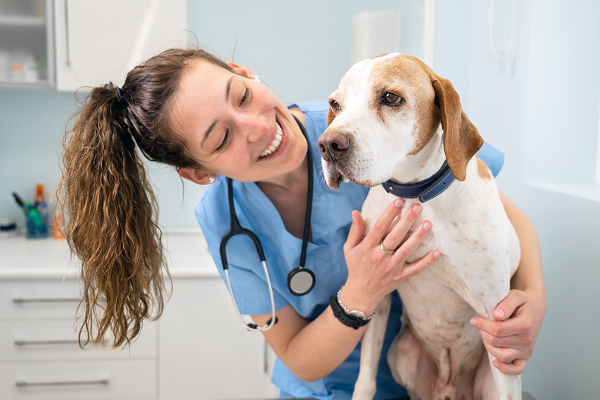
Pet owners know them as Veterinary Technicians or Nurses, and veterinary practices know them as Miracle Workers. They play a vital role in the day-to-day operations of veterinary clinics and without them, clinics would not function as they do today. That’s why they get a whole week in October dedicated to them—in Canada, they get the whole month! If we take a moment to recognize even just a few of their responsibilities, you will likely appreciate them year-round.
Below are some of the important tasks that a veterinary technician performs in a clinic. Consider that these examples can apply to cats and dogs, but also other pets, such as birds, reptiles, small mammals, horses, farm animals, and wildlife.
Surgery
- Perform many aspects of anesthesia, including placing the IV catheter to administer sedation or anesthesia, endotracheal intubation, and monitoring your pet’s vital signs like temperature, oxygen levels, heart, and respiratory rates.
- Prepare and clean the surgical area and assist the veterinary surgeon if needed.
- Clean and polish your pet’s teeth.
- Continue to monitor your pet during recovery, comforting them as they wake up.
- Prepare medications and homecare instructions for you when it’s time to bring your pet home.
Diagnostics
- Draw blood from your pet calmly and efficiently, so they hardly know it happened.
- Collect urine and fecal samples, sometimes analyzing them at the clinic for the veterinarian.
- Prepare samples for specialized testing, including the lab paperwork.
- Perform X-rays while keeping your pet safe and comfortable.
Hospitalization
- Set your pet up for hospitalization, including intravenous fluids, oxygen support, medications, and housing.
- Administer treatments as prescribed by the veterinarian at timed intervals or as needed.
- Keep a detailed diary of your pet’s vitals, hydration, appetite, behavior, comfort level, and other details as required by the veterinarian.
- Advocate for your pet when reviewing their condition with the attending veterinarian.
- Keep you updated on your pet’s progress and ensure your questions are answered.
Appointments
- Provide routine nail trims, ear cleaning, anal gland expression – or may teach you how to do them!
- Provide post-operative incision rechecks, suture removal, and bandage changes.
- Administer injectable medication and therapeutic laser therapy.
- Demonstrate how to give different types of medication and subcutaneous (under the skin) fluids to your pet at home.
Emergencies
- Triage your pet to ensure they are prioritized appropriately.
- If necessary, stabilize your pet until the veterinarian can see them (e.g., control bleeding, provide pain medication, oxygen support, temperature control).
- Assist the veterinarian during an emergency procedure (e.g., cesarean section, laceration repair, foreign body removal, unblocking a cat, blood transfusion, CPR).
Continuing Education and Licensing
Beyond the college education vet techs/nurses complete to qualify for their roles, they must be licensed to practice in most veterinary settings. To remain licensed, learn new skills, and stay informed about new practices and research, they are required to complete a minimum number of approved continuing education hours yearly.
This list of responsibilities is not exhaustive—and what isn’t covered in the job description: all types of bodily fluids (on their skin, scrubs, and hair), covering reception duties, missed breaks, extended shifts, aggressive animals, and exposure to infectious diseases.
Your pet’s veterinary clinic couldn’t operate without its heroic veterinary technicians/nurses. Knowing that, you might want to show your appreciation for all the important work they do! Here are a few ideas to show your appreciation any time of the year:
- Say “thank you” for all the work they do.
- Send a thank-you card with a photo of your pet doing well at home.
- Write a positive review on social media or the clinic’s website and mention how each team member contributed to your and your pet’s experience.
- If your pet has an extended hospital stay, consider sending treats or healthy snacks, such as muffins, cookies, a fruit tray, or even a box of hot coffee with all the fixings!
